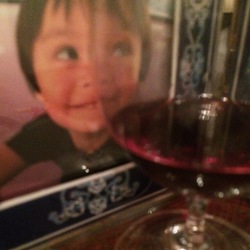R. López de Heredia
Viña Tondonia Reserva Rioja Tempranillo Blend
 La Rioja, Spain
La Rioja, Spain

2006 was a challenge for most in Rioja but the 2006 Vina Tondonia ‘Reserva’ is truly one of the wines of the vintage. The wine is a highly compelling blend of Tempranillo (75%), Garnacho (15%), Graciano and Mazuelo (10%), which was sourced from their estate vineyards and aged for six years prior to bottling. Needing a two hour decant to fully express itself, the wine offers an aromatic profile of cranberry, orange, red currants, red cherry candy and toasty oak aromatics. The palate is plush once in the attack as the wine effortlessly dances across the mid-palate, producing a seamless effect. Red currants, blood orange zest, pipe tobacco flavors and shades of pomegranate seed all beautifully weave their way through the palate. Showing wonderful ageing potential, this is drinking marvelously right now and has another fifteen years to go. Drink 2020-2035- 94
2006 was a challenge for most in Rioja but the 2006 Vina Tondonia ‘Reserva’ is truly one of the wines of the vintage. The wine is a highly compelling blend of Tempranillo (75%), Garnacho (15%), Graciano and Mazuelo (10%), which was sourced from their estate vineyards and aged for six years prior to bottling. Needing a two hour decant to fully express itself, the wine offers an aromatic profile of cranberry, orange, red currants, red cherry candy and toasty oak aromatics. The palate is plush once in the attack as the wine effortlessly dances across the mid-palate, producing a seamless effect. Red currants, blood orange zest, pipe tobacco flavors and shades of pomegranate seed all beautifully weave their way through the palate. Showing wonderful ageing potential, this is drinking marvelously right now and has another fifteen years to go. Drink 2020-2035- 94
May 3rd, 2020
That is terrific. Drinking well. High QPR. #rarewineco
That is terrific. Drinking well. High QPR. #rarewineco
Apr 5th, 2020Thursday night and on the precipice of another weekend and it is time to revisit wine from Spain. Tonight's wine is the 2006 R. López de Heredia Viña Tondonia Reserva. This wine is from Rioja and is a blend of 75% Tempranillo, 15% Garnacho, 5% Graciano and 5% Manzuelo.
The nose has notes of black cherry, fig, licorice, vanilla, leather and cigar box.
On the palate there are well balanced notes of dried cherry, tart raspberry, coffee, licorice, leather and tobacco.
This wine is medium to full bodied with medium + acidity and medium + firm tannins that lead to a long persistent dry finish a very nice wine to start the weekend off right. Enjoy the weekend coming up and please stay safe. Nostrovia! 🍷🍷🍷🍷
Thursday night and on the precipice of another weekend and it is time to revisit wine from Spain. Tonight's wine is the 2006 R. López de Heredia Viña Tondonia Reserva. This wine is from Rioja and is a blend of 75% Tempranillo, 15% Garnacho, 5% Graciano and 5% Manzuelo.
The nose has notes of black cherry, fig, licorice, vanilla, leather and cigar box.
On the palate there are well balanced notes of dried cherry, tart raspberry, coffee, licorice, leather and tobacco.
This wine is medium to full bodied with medium + acidity and medium + firm tannins that lead to a long persistent dry finish a very nice wine to start the weekend off right. Enjoy the weekend coming up and please stay safe. Nostrovia! 🍷🍷🍷🍷

Arghh, wow. Staggeringly youthful. Hits you with a bright, orange zesty palate with fresh acidity and dusty tannin. Very smokey on the nose, with a hint of lavender by the second day. There’s a lot of dried red fruit. Long finish that - surely the sign of any great wine - seems to lengthen with every sip.
Rich, lively and no doubt at the early stage of a long life ahead. Completely different to the 2002 I tasted last, more so than merely the four years between them - if anything, this is somewhat less elegant and more robust. All in good time...
Arghh, wow. Staggeringly youthful. Hits you with a bright, orange zesty palate with fresh acidity and dusty tannin. Very smokey on the nose, with a hint of lavender by the second day. There’s a lot of dried red fruit. Long finish that - surely the sign of any great wine - seems to lengthen with every sip.
Rich, lively and no doubt at the early stage of a long life ahead. Completely different to the 2002 I tasted last, more so than merely the four years between them - if anything, this is somewhat less elegant and more robust. All in good time...

With the Wine Blight laying waste to her vineyards, France went from 8:1 exporter in 1870 to 6:1 importer in 1887. Legions of wine farmers faced total financial ruin. With no cure - or even a proper diagnosis - in sight, many saw no option but to flee to lands not yet affected.
The influx of institutional knowledge that flooded into former backwater wine regions like Rioja catapulted them into relevance, and soon matured into a world-class standard. The farmers had found respite, but couldn't run forever. By the time Phylloxera crossed the Pyrenees, however, there would be new ways to fight back.
French botanist Jules-Emile Planchon had a theory. If the blight was caused by a microscopic American insect as he suspected, perhaps grafted European varieties on American rootstock would be resistant. This would be confirmed by Missouri entomologist Charles Riley, and with millions of rootstocks supplied by Texas horticulturalist T.V. Munson, the Wine Blight was soon in remission.
(This is adapted from notes for Le Dû’s Wines ‘History of Wine 1453AD-Present’ seminar, where this wine was poured)
With the Wine Blight laying waste to her vineyards, France went from 8:1 exporter in 1870 to 6:1 importer in 1887. Legions of wine farmers faced total financial ruin. With no cure - or even a proper diagnosis - in sight, many saw no option but to flee to lands not yet affected.
The influx of institutional knowledge that flooded into former backwater wine regions like Rioja catapulted them into relevance, and soon matured into a world-class standard. The farmers had found respite, but couldn't run forever. By the time Phylloxera crossed the Pyrenees, however, there would be new ways to fight back.
French botanist Jules-Emile Planchon had a theory. If the blight was caused by a microscopic American insect as he suspected, perhaps grafted European varieties on American rootstock would be resistant. This would be confirmed by Missouri entomologist Charles Riley, and with millions of rootstocks supplied by Texas horticulturalist T.V. Munson, the Wine Blight was soon in remission.
(This is adapted from notes for Le Dû’s Wines ‘History of Wine 1453AD-Present’ seminar, where this wine was poured)

Leather, cigar, olives, burned cherry, oak... a lot of good stuff going on here, but not fully integrated. Still loved it. Especially at the deep discount for a damaged label ($HKD).
Leather, cigar, olives, burned cherry, oak... a lot of good stuff going on here, but not fully integrated. Still loved it. Especially at the deep discount for a damaged label ($HKD).
Jul 1st, 2019
Vintage 2006 Blind tasted. The bouquet misleads me: sweet! Then mocca, cacao, toffee, coconut, and even roses. Rich taste with excellent structure. A treat!
Vintage 2006 Blind tasted. The bouquet misleads me: sweet! Then mocca, cacao, toffee, coconut, and even roses. Rich taste with excellent structure. A treat!
May 4th, 2019Dried strawberries and leather with significant oak impression (dill, astringent tannins), medium bodied 13ABV. The extract and concentration will allow the oak to further integrate over time. This beauty has a long life ahead.
Dried strawberries and leather with significant oak impression (dill, astringent tannins), medium bodied 13ABV. The extract and concentration will allow the oak to further integrate over time. This beauty has a long life ahead.
Apr 9th, 2019





